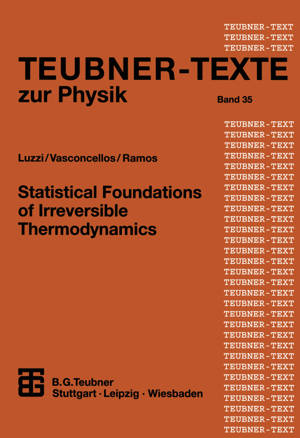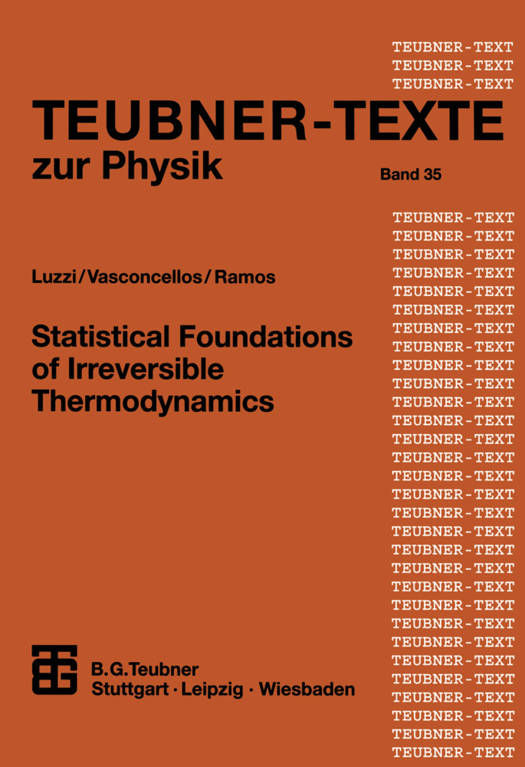
- Retrait gratuit dans votre magasin Club
- 7.000.000 titres dans notre catalogue
- Payer en toute sécurité
- Toujours un magasin près de chez vous
- Retrait gratuit dans votre magasin Club
- 7.000.0000 titres dans notre catalogue
- Payer en toute sécurité
- Toujours un magasin près de chez vous
Statistical Foundations of Irreversible Thermodynamics
Roberto Luzzi, Aurea R Vasconcellos, J Galvao Ramos
42,45 €
+ 84 points
Description
Thermodynamics is considered to be an offshoot of the Industrial Revo- lution that began in England in the second half of the 18th Century and from there spread to other parts of the world. The word thermodynamics is derived from the Greek therme (meaning heat) and dynamis (meaning force). As well known, the origins of thermodynamics are founded in the early 19th century in the study of the motive power of heat; that is, the capability of hot bodies to produce mechanical work. However, there are of course precursors to these ideas: Temperature is probably the earliest thermodynamic concept to attain operational status (early in the 17th century with Galileo). The science of calorimetry beginning in the late 18th century (contemporary with the beginning of the Indus- trial Revolution) led to the establishment of the caloric theory of heat [5]. Clausius in the second half of the 19th century established Thermody- namics as a clearly defined science. The connection of Thermodynamics with Mechanics is first achieved through kinetic theory with the work of D. Bernouilli, J Herapath, ]. ]. Waterston, R. Clausius, ]. c. Maxwell, and finally L. Boltzmann, later through Statistical Mechanics, whose main purpose is to determine the thermodynamic properties and values of macroscopic observables in terms of the dynamical laws that govern the motion of the constitutive particles of the system. It is not easy to estab- lish precisely the dates of the birth of Statistical Mechanics.
Spécifications
Parties prenantes
- Auteur(s) :
- Editeur:
Contenu
- Nombre de pages :
- 170
- Langue:
- Anglais
- Collection :
- Tome:
- n° 35
Caractéristiques
- EAN:
- 9783519002833
- Date de parution :
- 11-10-00
- Format:
- Livre broché
- Format numérique:
- Trade paperback (VS)
- Dimensions :
- 156 mm x 234 mm
- Poids :
- 267 g

Les avis
Nous publions uniquement les avis qui respectent les conditions requises. Consultez nos conditions pour les avis.






